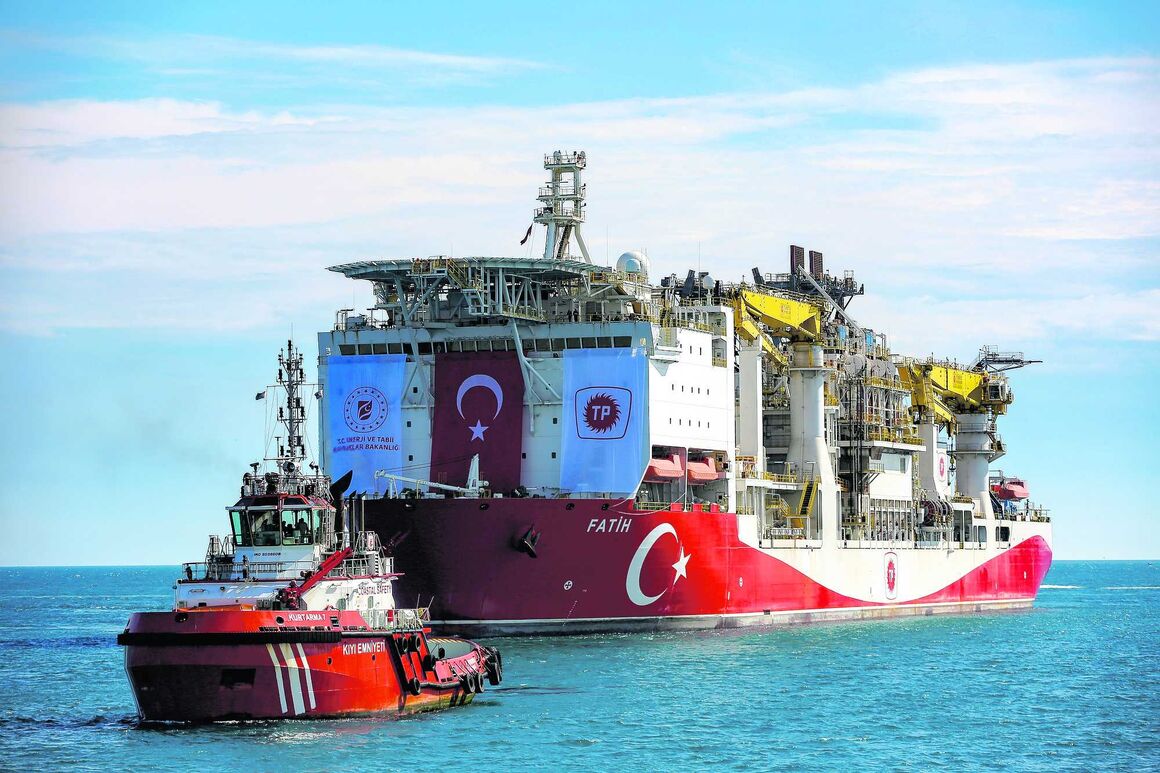It was in August 2020 that Turkish President Recep Tayyip Erdogan announced the discovery of the Sakarya gas field, around 170 kilometers off Turkey's northern coasts and deep into the North Sea, with estimated reserves of 320 bcm. Two months later, another field was discovered in the same area, this time with estimated reserves of 85 bcm. That put Turkey in 11th position in the world in terms of subsea natural gas reserves with total amount of 405 bcm of known gas reserves in place. Over a period of five years, Turkey can invest $10-30 billion to extract gas from its reservoirs.
Energy import fallout
The discovery of oil and gas reserves by Turkey can turn this country, which was dependent on energy imports in the past decades, into a country that, in the first place, will meet its needs without having to import from other countries, and then it will have the chance to join oil and gas exporters in the world. In the past decades, Turkey imported about 99% of its natural gas and 93% of its oil needs from abroad. This amount of energy import had several major consequences for the country:
Turkey had to spend too much on oil and gas imports, which posed a challenge to the growing economy of Turkey. The big sums spent on energy imports could be used in others sectors of the country's economy. Therefore, the discovery of gas resources can cut from the country's $40 billon imports while creating job opportunities and businesses.
Turkish people had to always pay too much for energy, which imposed budget crunch on them. The impact of high energy prices on the ordinary life of Turkish people was significant. Therefore, new gas finds can positively impact their livelihood and fulfil their longtime dream of access to energy. It has to be kept in mind that failure to explore energy resources over recent years had disheartened the Turks.
Energy imports from other countries forced Ankara to have political reservations with regard to its energy resources. In fact, energy supply has always been a major factor in Turkey’s relations with Russia, Iran, Azerbaijan, Algeria, Nigeria, the United States, and Qatar. Undoubtedly, new energy finds would enable Ankara to no longer take seriously its reservations in political ties with other nations.
Domestic energy shortages and dependence on imports had led to Turkey’s increased dependence on goal for power generation over recent years. Now, new sources of energy can reduce coal use and help Turkey achieve its environmental objectives.
Challenges
If alongside extracting and exploiting newly-discovered reserves, Turkey manages to become the energy hub in the region as it has wished for years, it will be positioned specially to join producer and deliver oil and gas supplied by other countries to Europe. Given Turkey’s geopolitics, that can boost its position. However, conditions are not yet smooth for energy extraction by Turkey to become a leading producer.
In fact, although gas discovery is a blessing for Turkey’s economy, numerous challenges remain the way when it comes to exploiting these new resources. One major challenge is high costs of gas extraction from some fields. For instance, Romania had discovered a field similar to Turkey’s TUNA-1 that required big investment and cutting edge technology, which rendered gas extraction uneconomical. Therefore, Turkey is likely to face similar obstacles as exploiting these resources would not be cost-effective. Under the present circumstances, Turkey’s economy lacks necessary potential for major investments.
Meantime, there are some specific challenges with regard to discoveries in the Mediterranean. Political tensions on ownership of fields and border disputes due to jointly-owned fields add to difficulties of oil and gas extraction in Turkey. Ankara believes that Greece-Egypt maritime agreement has transgressed its exclusive economic zone. That is why Turkey refuses to recognize the agreement. Meantime, Turkey-Libya border agreement on Mediterranean demarcation has elicited objection from Greece, Egypt, Zionist Regime and Cyprus. Efforts to extract oil and gas from the east Mediterranean have stoked up Athens-Ankara tensions because Turkey and Cyprus both lay claim to some fields. In the midst of disputes, Ankara has sought in some cases to pursue its national interests through political agreements or by threatening military action. However, challenges remain.
Finally, despite the fact that oil and gas discovery can take Turkey out of tough energy conditions, it does not necessarily mean that Ankara’s needs would be entirely met. In parallel with investment in new reservoirs, it has to increase the share of renewables and bring into operation its nuclear power plant projects.
Iran Petroleum


Your Comment